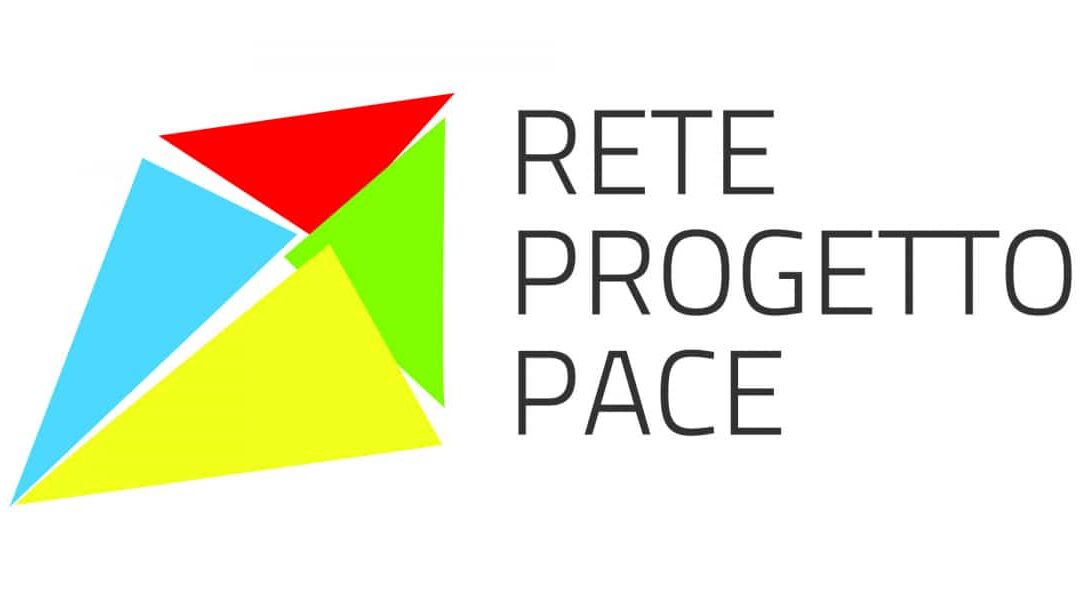
24 Feb 2019 | Non categorizzato
The project “Why fai il bullo?”(Why are you a bully?) aims at training teenagers help their peers deal with this phenomenon. Teenagers are trained to understand bullying, to prevent it and also to be upstanders in bullying situations. 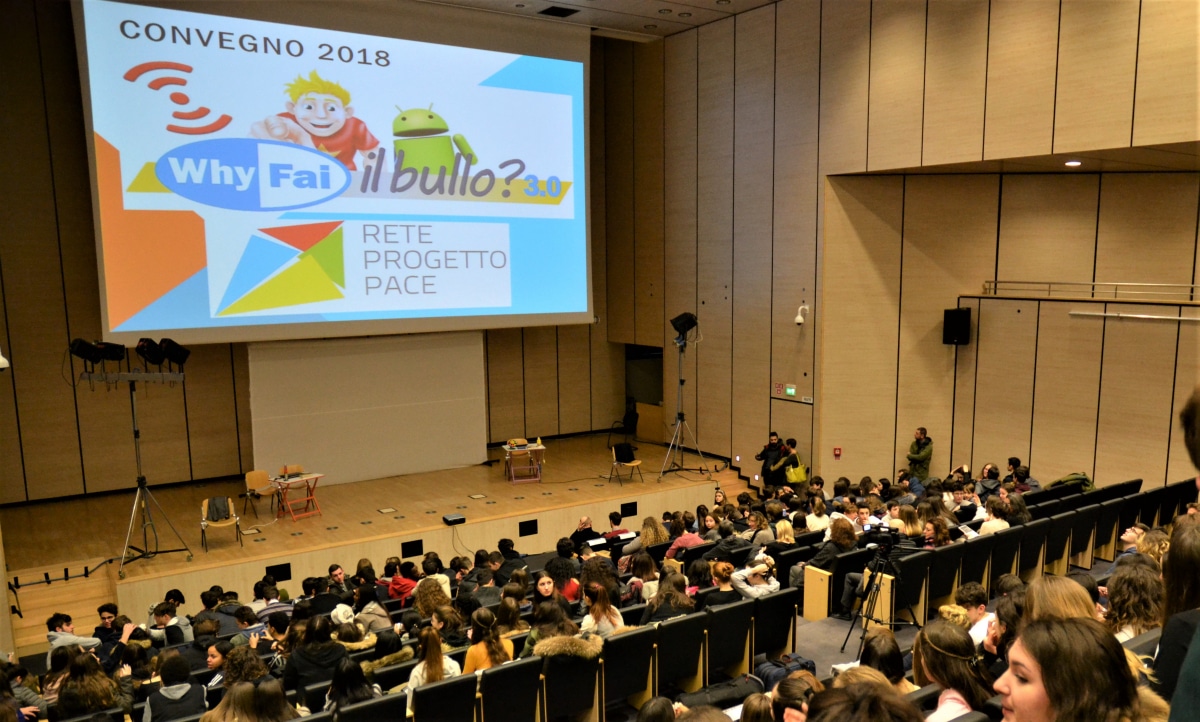 Bullying is repeated aggressive behaviour through which school-aged children intimidate and abuse their peers. This is a widespread phenomenon among teenagers, both on a personal level and also through cyberbullying.It involves the bullies, the victims and groups of friends,who are often either frightened or become accomplices. What can be done? A project set up by the bNet Association, a branch of “Rete Progetto Pace” (Peace Network Project),which is an international network of schools, bodies and associations that collaborate to promote a culture of peace, aims at training children and empowering them against bullying. Marco Provenzale, president of the Association spoke to us about this project. – What does the project “Why fai il bullo?” consist of? Bullying is the product of conflict, and we believe that the best way to stop it is to make children understand its origin, and give them the necessary tools to understand conflicts and solve them through the support they give one another. At the core of this project one finds the “Peer Mediation Group”, set up in each school. The students in this group are trained to manage and resolve conflicts. Lessons and role-plays help them acquire well-developed skills not only to solve conflicts, but also to prevent them. They are trained to detect potentially damaging situations in their daily school life in order to address them before these degenerate into more serious ones. The group also offers a mediation service through techniques and rules agreed upon by each school. We deal with students aged between 11 and 15 years. This European project was set up in 2015 after some associations answered the call to “Join Forces to Combat Cyberbullying in Schools”. It can also be implemented in other countries.
Bullying is repeated aggressive behaviour through which school-aged children intimidate and abuse their peers. This is a widespread phenomenon among teenagers, both on a personal level and also through cyberbullying.It involves the bullies, the victims and groups of friends,who are often either frightened or become accomplices. What can be done? A project set up by the bNet Association, a branch of “Rete Progetto Pace” (Peace Network Project),which is an international network of schools, bodies and associations that collaborate to promote a culture of peace, aims at training children and empowering them against bullying. Marco Provenzale, president of the Association spoke to us about this project. – What does the project “Why fai il bullo?” consist of? Bullying is the product of conflict, and we believe that the best way to stop it is to make children understand its origin, and give them the necessary tools to understand conflicts and solve them through the support they give one another. At the core of this project one finds the “Peer Mediation Group”, set up in each school. The students in this group are trained to manage and resolve conflicts. Lessons and role-plays help them acquire well-developed skills not only to solve conflicts, but also to prevent them. They are trained to detect potentially damaging situations in their daily school life in order to address them before these degenerate into more serious ones. The group also offers a mediation service through techniques and rules agreed upon by each school. We deal with students aged between 11 and 15 years. This European project was set up in 2015 after some associations answered the call to “Join Forces to Combat Cyberbullying in Schools”. It can also be implemented in other countries. 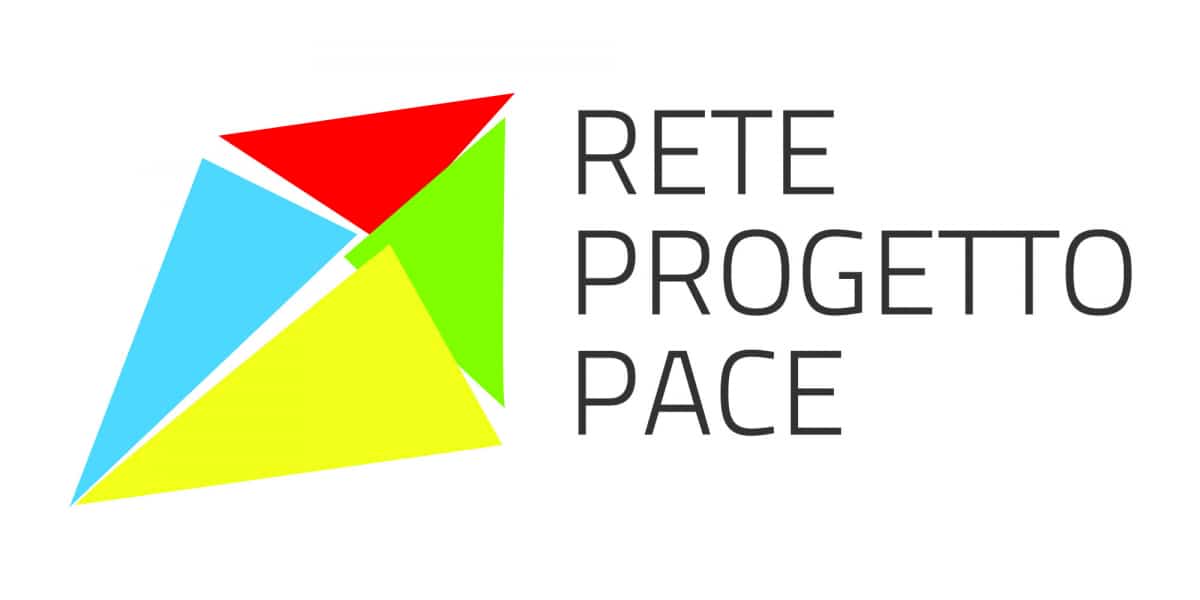 -Does the project also include parallel activities? Yes it does; it offers monthly training sessions and organizes annual events, amongst which is an intercultural and humanitarian journey. Training sessions for teachers and parents are also being planned. We consider the joint effort of the association, school and families as one of the added values of this initiative. -This project is promoted by bNET Association, a branch of “Rete Progetto Pace”. What are the objectives of this network? For almost thirty years, “Rete Progetto Pace” has been contributing to an integral education for children. It promotes collaboration between schools and associations, at a local and international level; it studies young people’s views on current issues and promotes experiences of voluntary work. The project also encourages artistic and expressive talents, leadership skills and and technical skills in postive use of the media. Further information may be found on: www.reteprogettopace.it or by writing to: direttivo@reteprogettopace.it.
-Does the project also include parallel activities? Yes it does; it offers monthly training sessions and organizes annual events, amongst which is an intercultural and humanitarian journey. Training sessions for teachers and parents are also being planned. We consider the joint effort of the association, school and families as one of the added values of this initiative. -This project is promoted by bNET Association, a branch of “Rete Progetto Pace”. What are the objectives of this network? For almost thirty years, “Rete Progetto Pace” has been contributing to an integral education for children. It promotes collaboration between schools and associations, at a local and international level; it studies young people’s views on current issues and promotes experiences of voluntary work. The project also encourages artistic and expressive talents, leadership skills and and technical skills in postive use of the media. Further information may be found on: www.reteprogettopace.it or by writing to: direttivo@reteprogettopace.it.
Anna Lisa Innocenti
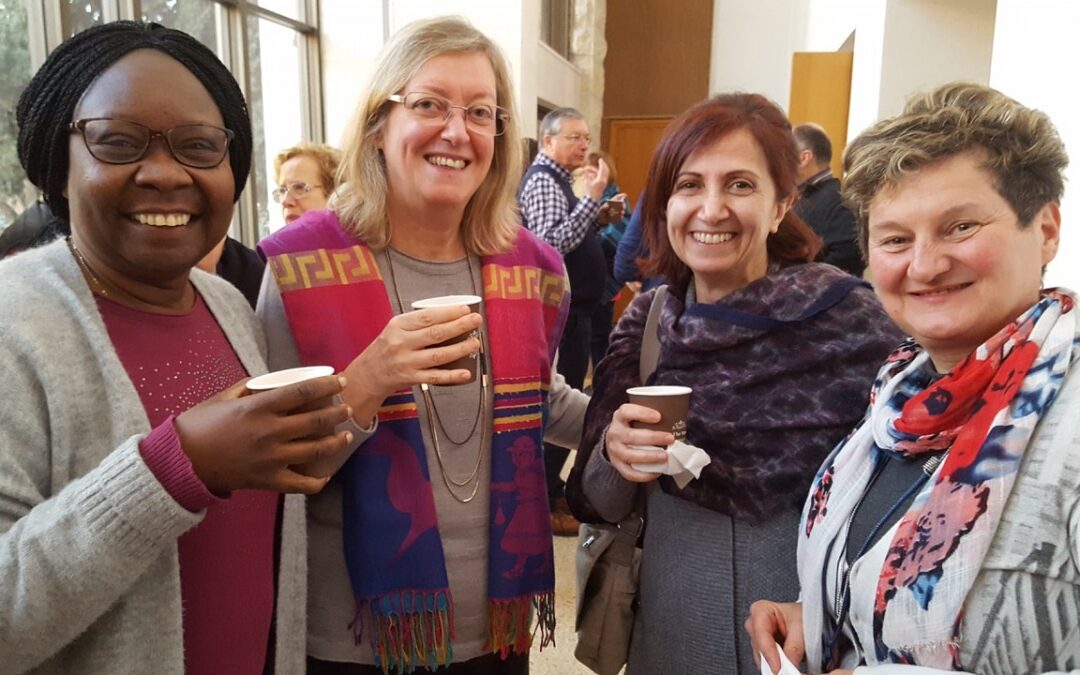
15 Feb 2019 | Non categorizzato
The Focolare’s General Council, on retreat in the Holy Land, has just finished three days’ work on the communion of goods, the new generations and the 2020 General Assembly. 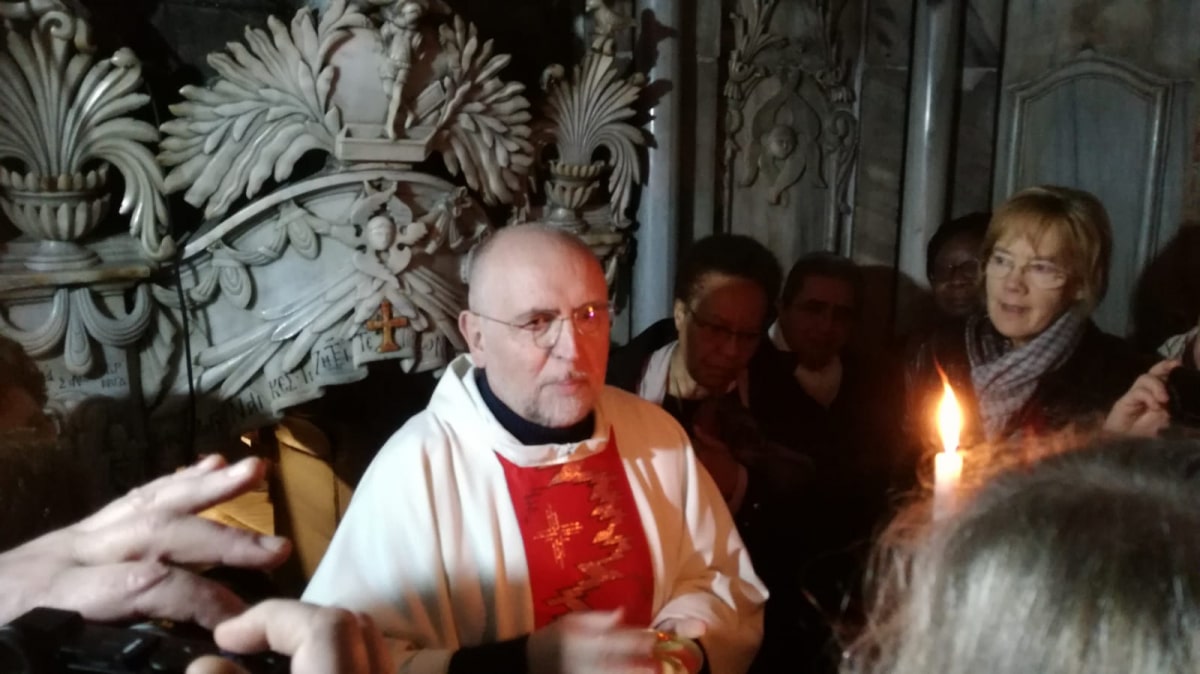 “Jesus, who was buried here and rose from the dead, wants to live in our midst so that we can bring his presence throughout the world.” Those are the words of Jesús Morán, Co-President of the Focolare Movement, after celebrating Mass for the General Council in the Church of the Holy Sepulchre. Everyone rose at dawn to be able to enter that extraordinary place – one that seems deeply connected with their week-long retreat in the Holy Land. Standing before the tomb left empty by the Risen Jesus, they too posed questions about the future, just as the disciples must have done. Where is the Risen Lord leading the Focolare Movement today? Where should the Movement focus its strength, energy and resources?
“Jesus, who was buried here and rose from the dead, wants to live in our midst so that we can bring his presence throughout the world.” Those are the words of Jesús Morán, Co-President of the Focolare Movement, after celebrating Mass for the General Council in the Church of the Holy Sepulchre. Everyone rose at dawn to be able to enter that extraordinary place – one that seems deeply connected with their week-long retreat in the Holy Land. Standing before the tomb left empty by the Risen Jesus, they too posed questions about the future, just as the disciples must have done. Where is the Risen Lord leading the Focolare Movement today? Where should the Movement focus its strength, energy and resources? 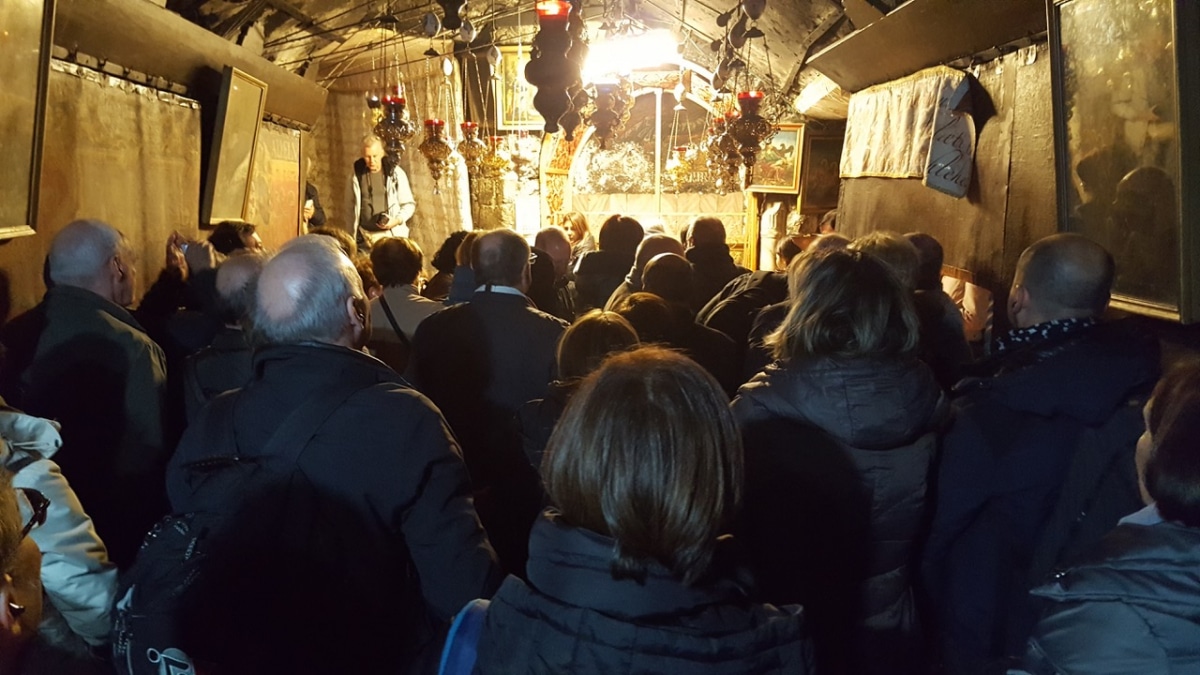 These questions permeated discussions on the three key subjects addressed in Jerusalem. Concerning the “communion of goods, economy and work”, the General Council noted that in all the various parts of the Movement there is a great desire to go back to the radical life of the early days and live the communion of goods with new consistency and commitment. Ways in which this could be enabled concretely were discussed. Consideration of the new generations of the Focolare Movement, the second main subject, was enriched by evaluating the Genfest held last year in Manila and the recent World Youth Day in Panama. Those two events highlighted the great potential of young people and teenagers. This is also seen in their work for the “Pathways for a United World” project and their commitment to “Zero Hunger” by 2030. Thought was given on how to give continuity to individual initiatives.
These questions permeated discussions on the three key subjects addressed in Jerusalem. Concerning the “communion of goods, economy and work”, the General Council noted that in all the various parts of the Movement there is a great desire to go back to the radical life of the early days and live the communion of goods with new consistency and commitment. Ways in which this could be enabled concretely were discussed. Consideration of the new generations of the Focolare Movement, the second main subject, was enriched by evaluating the Genfest held last year in Manila and the recent World Youth Day in Panama. Those two events highlighted the great potential of young people and teenagers. This is also seen in their work for the “Pathways for a United World” project and their commitment to “Zero Hunger” by 2030. Thought was given on how to give continuity to individual initiatives. 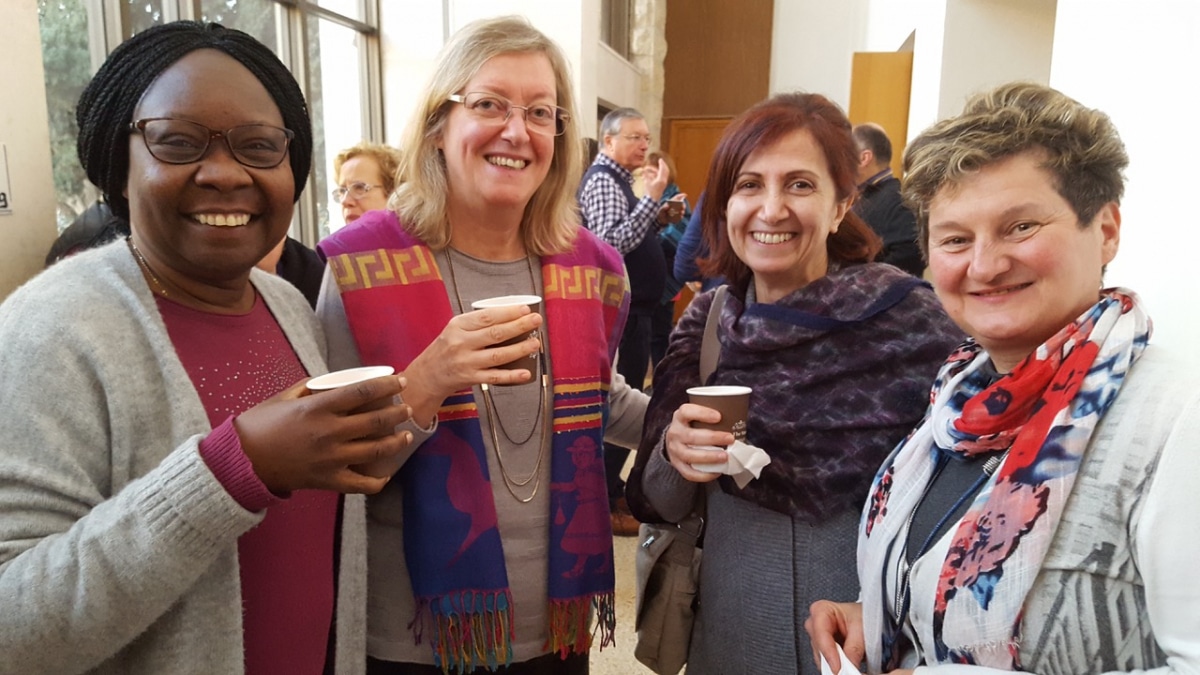 The third subject was preparations for the upcoming General Assembly in 2020. The General Council studied ways in which the Assembly can reflect the various vocations within the Movement and their geographical and cultural diversity. They also discussed how to reconcile the need for continuity and the need for innovation that characterise the Movement at present. A commission will shortly be formed to organise the Assembly and their work will be based on these two areas. While the retreat may seem to be made up of questions without answers, that was not the case. While it was agreed not to draw up a statement or guidelines, what came to light is the journey being travelled now, the fruit of the Movement’s life throughout the world. Posing questions about the journey; being challenged by the issues of the day and seeking answers; drawing on the past to look to the future: all this can yield unexpected effects. All this can enable us to meet the Risen Lord on unexpected roads, just as happened to the two disciples who, leaving the empty tomb behind them, set off towards Emmaus.
The third subject was preparations for the upcoming General Assembly in 2020. The General Council studied ways in which the Assembly can reflect the various vocations within the Movement and their geographical and cultural diversity. They also discussed how to reconcile the need for continuity and the need for innovation that characterise the Movement at present. A commission will shortly be formed to organise the Assembly and their work will be based on these two areas. While the retreat may seem to be made up of questions without answers, that was not the case. While it was agreed not to draw up a statement or guidelines, what came to light is the journey being travelled now, the fruit of the Movement’s life throughout the world. Posing questions about the journey; being challenged by the issues of the day and seeking answers; drawing on the past to look to the future: all this can yield unexpected effects. All this can enable us to meet the Risen Lord on unexpected roads, just as happened to the two disciples who, leaving the empty tomb behind them, set off towards Emmaus.
Joachim Schwind
10 Feb 2019 | Non categorizzato
On the 2019 World Day of the Sick we share a short reflection by Chiara Lubich on illness and the Focolare Movement’s communities where sick people are living. You know that the whole of our Christian life is revolutionary. It completely changes our way of thinking and goes against the flow. Now, looking at how sick people are considered in the world, we see that in some ways they are considered differently from healthy people, as if they were a separate category, especially if their illness is long term or incurable. Today’s society does not understand the value of suffering. It wants to forget about both suffering and death and so it marginalises the sick. This is something seriously anti-Christian because, of all marginalised people, Jesus Christ on the cross would really be number one. So these particular communities where sick people are living are of course like the others, but they are also special because of the fruit they bear and the witness they give to the world of what suffering means to a Christian. Suffering is a gift God gives to a person. These are not only words said to console ourselves or console the sick. All those who are not well are truly loved by God in a special way, because they are more like his Son. (Chiara Lubich, Perchè mi hai abbandonato?, 1997, pp.108-109)
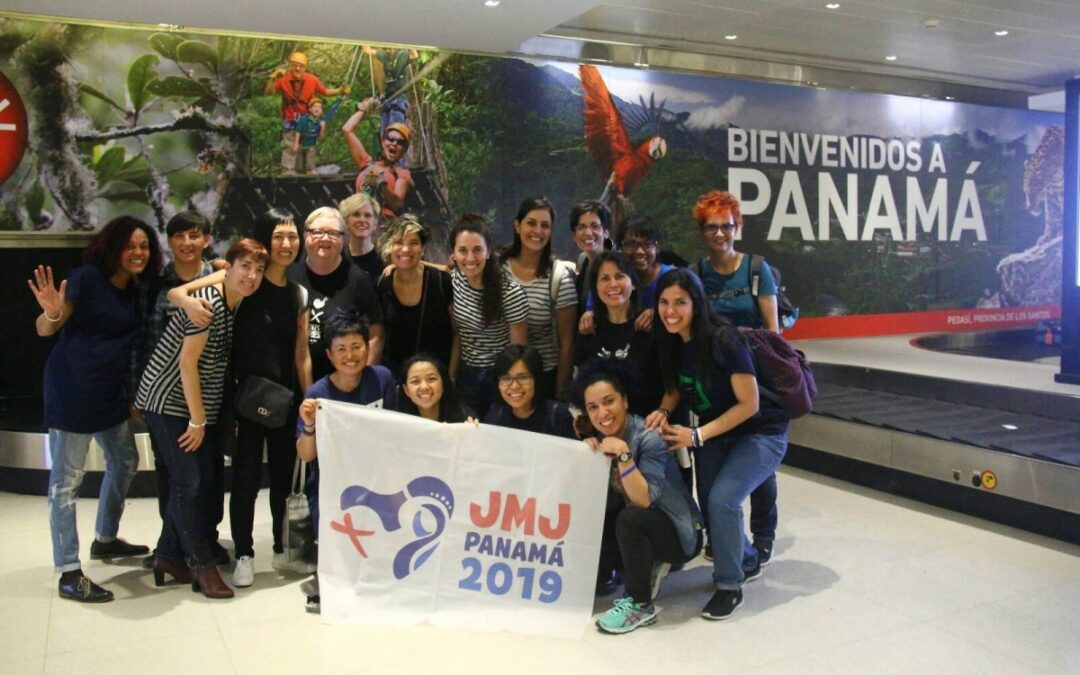
6 Feb 2019 | Non categorizzato
Members of the music group share their experience of visiting Great Britain, Luxembourg and then Panama for the World Youth Day. They are now on tour in Cuba, Guatemala and El Salvador. Your most recent album “From the inside outside” expresses a very positive attitude towards other people. It seems to be saying that everyone can find a light within themselves which can be shared with others. Is that right? 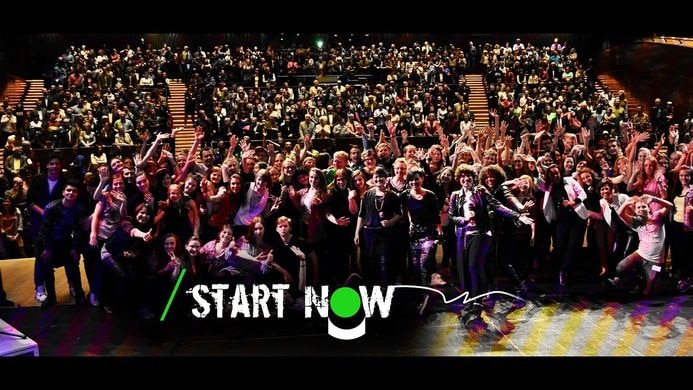 Adriana: Nowadays we often hear that society is passing through a cultural night, so to speak, and that “darkness” and division are very evident. We want the message of this album to be an invitation to draw out and rekindle the hope that is often hidden beneath ashes inside many of us. The album has evolved from the experiences we have had with thousands of young people during our tours. Thanks to the “Start Now” project which consists of a series of workshops and a final concert, we have the opportunity to live in close contact with the new generations. We are aware of the challenges that they face but also of the fact that they are wonderful people. Sometimes we share our experience with them but not as adults who have worked out all the answers. Often we look at the challenges with them, try to face up to them and to find a solution. They often say, “Nothing will have changed when I go back home but I will deal with the situation in a different way.” Do you think that music, singing and dance are means of relating to young people? Sally: This is a particular characteristic of performing arts: they create dialogue and openness. The results are often really surprising. In a school where we were running a project, there was a student who suffered from selective mutism; that is, she had decided not to speak any more. When she signed up for the singing workshop we really wondered what she would do. The first day she didn’t open her mouth at all, the second day she just thanked us but the third day she offered to sing a harmony. She went home and, in tears, told her mother that she had found her voice again. The teachers were really moved and said, “This is really unbelievable. She always used to be on her own and now she is beginning to speak to other students…..” This is just one example; there would be so many more to share. The song “Not in my name” focuses on the relationship between Muslims and Christians. How did that begin? Adriana: We wanted to show solidarity with our Muslim friends and emphasise the values that we have in common. We knew that many of them were suffering because a mistaken image of Islam was becoming widespread and because the very heart of their religion is different from what was being portrayed in the media. The actual process of creating the song was an experience of dialogue. We were inspired by the words of Doctor Mohammad Ali Shomali, Director of the International Institute for Islamic Studies in Qum, Iran, who we had met in Loppiano. He had said that we are all like little drops that reflect the face of God and that together we can be an ocean of love. When he read the words of the song, he said that he felt totally expressed by them. We worked with Rassim Bouaballah, a Muslim member of the Focolare in the musical arrangement. He played the violin for the recording.
Adriana: Nowadays we often hear that society is passing through a cultural night, so to speak, and that “darkness” and division are very evident. We want the message of this album to be an invitation to draw out and rekindle the hope that is often hidden beneath ashes inside many of us. The album has evolved from the experiences we have had with thousands of young people during our tours. Thanks to the “Start Now” project which consists of a series of workshops and a final concert, we have the opportunity to live in close contact with the new generations. We are aware of the challenges that they face but also of the fact that they are wonderful people. Sometimes we share our experience with them but not as adults who have worked out all the answers. Often we look at the challenges with them, try to face up to them and to find a solution. They often say, “Nothing will have changed when I go back home but I will deal with the situation in a different way.” Do you think that music, singing and dance are means of relating to young people? Sally: This is a particular characteristic of performing arts: they create dialogue and openness. The results are often really surprising. In a school where we were running a project, there was a student who suffered from selective mutism; that is, she had decided not to speak any more. When she signed up for the singing workshop we really wondered what she would do. The first day she didn’t open her mouth at all, the second day she just thanked us but the third day she offered to sing a harmony. She went home and, in tears, told her mother that she had found her voice again. The teachers were really moved and said, “This is really unbelievable. She always used to be on her own and now she is beginning to speak to other students…..” This is just one example; there would be so many more to share. The song “Not in my name” focuses on the relationship between Muslims and Christians. How did that begin? Adriana: We wanted to show solidarity with our Muslim friends and emphasise the values that we have in common. We knew that many of them were suffering because a mistaken image of Islam was becoming widespread and because the very heart of their religion is different from what was being portrayed in the media. The actual process of creating the song was an experience of dialogue. We were inspired by the words of Doctor Mohammad Ali Shomali, Director of the International Institute for Islamic Studies in Qum, Iran, who we had met in Loppiano. He had said that we are all like little drops that reflect the face of God and that together we can be an ocean of love. When he read the words of the song, he said that he felt totally expressed by them. We worked with Rassim Bouaballah, a Muslim member of the Focolare in the musical arrangement. He played the violin for the recording. 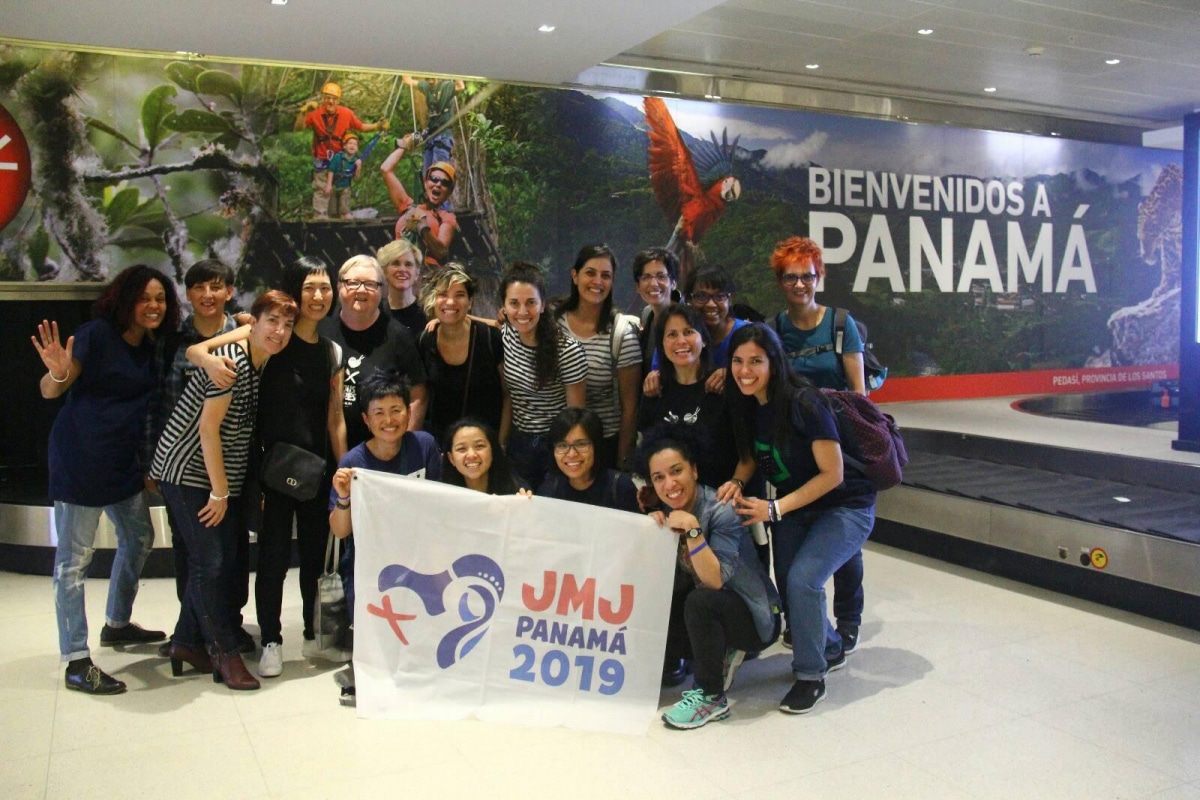 Now you are in Central America and have taken part in the World Youth Day. How is this trip going? Alessandra: In Panama, in the cities of Chitre and Colon, we worked with young people to hold concerts for the thousands of pilgrims at the World Youth Day. Being on stage with these young people made us both experience and say to others that together we can hope. We also had an unforgettable experience at the Women’s Prison in Panama City. Life is very difficult for these women but they listened so attentively: they often applauded spontaneously and cried when they heard the songs. At the end, many of them told us that they felt that it was as if we had all experienced the same things; they felt that together we can begin again and look to the future even in a place where this could seem impossible. It was seeing that God’s mercy can work in our lives irrespective of the circumstances.
Now you are in Central America and have taken part in the World Youth Day. How is this trip going? Alessandra: In Panama, in the cities of Chitre and Colon, we worked with young people to hold concerts for the thousands of pilgrims at the World Youth Day. Being on stage with these young people made us both experience and say to others that together we can hope. We also had an unforgettable experience at the Women’s Prison in Panama City. Life is very difficult for these women but they listened so attentively: they often applauded spontaneously and cried when they heard the songs. At the end, many of them told us that they felt that it was as if we had all experienced the same things; they felt that together we can begin again and look to the future even in a place where this could seem impossible. It was seeing that God’s mercy can work in our lives irrespective of the circumstances.
a cura di Anna Lisa Innocenti
5 Feb 2019 | Non categorizzato
Do something yourself to heal broken relationships in your city The beating Since the battle against drug trafficking started in Mexico, there have been many victims, not always because of criminal violence. Some time ago, I was on my way home from school when a young guy asked me for a cigarette. Just then, some policemen arrived and they searched us. Then they started beating the other guy and insulting him, leaving him injured and bleeding in the middle of the road. I had witnessed this without being able to do anything, but then I helped him get up and gave him the few coins I had in my pocket. He thanked me and said, ‘This money means my family will have a meal today.’ (Abraham, Mexico) The exchange of letters In our young people’s catechism class, we studied the Works of Mercy. To put them into practice we thought of writing to women in prison. I outlined the project to the Prison Governor who did not agree at first. However, later, when he had consulted other staff, he saw it was a good idea and could help the women. So, the project was approved and the young people got to work preparing drawings and letters to send to the prisoners. (Prisca, Switzerland) Bazar I knew a few poor families and wanted to help them. In the office a colleague asked me if I was interested in some good quality clothing she no longer needed and toys that belonged to her children who were now grown up. I told her about my desire to help the families and she decided to get others involved. Very soon we had gathered so much stuff in a garage that we either gave away or sold at a bazaar. With the proceeds we have been able to help a lot of families in difficulty. After this experience another colleague who is often very grumpy said we couldn’t stop there so we keep looking around to see who else we can help. (R.A.R. – Brazil)
Edited by Chiara Favotti

 Bullying is repeated aggressive behaviour through which school-aged children intimidate and abuse their peers. This is a widespread phenomenon among teenagers, both on a personal level and also through cyberbullying.It involves the bullies, the victims and groups of friends,who are often either frightened or become accomplices. What can be done? A project set up by the bNet Association, a branch of “Rete Progetto Pace” (Peace Network Project),which is an international network of schools, bodies and associations that collaborate to promote a culture of peace, aims at training children and empowering them against bullying. Marco Provenzale, president of the Association spoke to us about this project. – What does the project “Why fai il bullo?” consist of? Bullying is the product of conflict, and we believe that the best way to stop it is to make children understand its origin, and give them the necessary tools to understand conflicts and solve them through the support they give one another. At the core of this project one finds the “Peer Mediation Group”, set up in each school. The students in this group are trained to manage and resolve conflicts. Lessons and role-plays help them acquire well-developed skills not only to solve conflicts, but also to prevent them. They are trained to detect potentially damaging situations in their daily school life in order to address them before these degenerate into more serious ones. The group also offers a mediation service through techniques and rules agreed upon by each school. We deal with students aged between 11 and 15 years. This European project was set up in 2015 after some associations answered the call to “Join Forces to Combat Cyberbullying in Schools”. It can also be implemented in other countries.
Bullying is repeated aggressive behaviour through which school-aged children intimidate and abuse their peers. This is a widespread phenomenon among teenagers, both on a personal level and also through cyberbullying.It involves the bullies, the victims and groups of friends,who are often either frightened or become accomplices. What can be done? A project set up by the bNet Association, a branch of “Rete Progetto Pace” (Peace Network Project),which is an international network of schools, bodies and associations that collaborate to promote a culture of peace, aims at training children and empowering them against bullying. Marco Provenzale, president of the Association spoke to us about this project. – What does the project “Why fai il bullo?” consist of? Bullying is the product of conflict, and we believe that the best way to stop it is to make children understand its origin, and give them the necessary tools to understand conflicts and solve them through the support they give one another. At the core of this project one finds the “Peer Mediation Group”, set up in each school. The students in this group are trained to manage and resolve conflicts. Lessons and role-plays help them acquire well-developed skills not only to solve conflicts, but also to prevent them. They are trained to detect potentially damaging situations in their daily school life in order to address them before these degenerate into more serious ones. The group also offers a mediation service through techniques and rules agreed upon by each school. We deal with students aged between 11 and 15 years. This European project was set up in 2015 after some associations answered the call to “Join Forces to Combat Cyberbullying in Schools”. It can also be implemented in other countries.  -Does the project also include parallel activities? Yes it does; it offers monthly training sessions and organizes annual events, amongst which is an intercultural and humanitarian journey. Training sessions for teachers and parents are also being planned. We consider the joint effort of the association, school and families as one of the added values of this initiative. -This project is promoted by bNET Association, a branch of “Rete Progetto Pace”. What are the objectives of this network? For almost thirty years, “Rete Progetto Pace” has been contributing to an integral education for children. It promotes collaboration between schools and associations, at a local and international level; it studies young people’s views on current issues and promotes experiences of voluntary work. The project also encourages artistic and expressive talents, leadership skills and and technical skills in postive use of the media. Further information may be found on: www.reteprogettopace.it or by writing to: direttivo@reteprogettopace.it.
-Does the project also include parallel activities? Yes it does; it offers monthly training sessions and organizes annual events, amongst which is an intercultural and humanitarian journey. Training sessions for teachers and parents are also being planned. We consider the joint effort of the association, school and families as one of the added values of this initiative. -This project is promoted by bNET Association, a branch of “Rete Progetto Pace”. What are the objectives of this network? For almost thirty years, “Rete Progetto Pace” has been contributing to an integral education for children. It promotes collaboration between schools and associations, at a local and international level; it studies young people’s views on current issues and promotes experiences of voluntary work. The project also encourages artistic and expressive talents, leadership skills and and technical skills in postive use of the media. Further information may be found on: www.reteprogettopace.it or by writing to: direttivo@reteprogettopace.it. 

 “Jesus, who was buried here and rose from the dead, wants to live in our midst so that we can bring his presence throughout the world.” Those are the words of Jesús Morán, Co-President of the Focolare Movement, after celebrating Mass for the General Council in the Church of the Holy Sepulchre. Everyone rose at dawn to be able to enter that extraordinary place – one that seems deeply connected with their week-long retreat in the Holy Land. Standing before the tomb left empty by the Risen Jesus, they too posed questions about the future, just as the disciples must have done. Where is the Risen Lord leading the Focolare Movement today? Where should the Movement focus its strength, energy and resources?
“Jesus, who was buried here and rose from the dead, wants to live in our midst so that we can bring his presence throughout the world.” Those are the words of Jesús Morán, Co-President of the Focolare Movement, after celebrating Mass for the General Council in the Church of the Holy Sepulchre. Everyone rose at dawn to be able to enter that extraordinary place – one that seems deeply connected with their week-long retreat in the Holy Land. Standing before the tomb left empty by the Risen Jesus, they too posed questions about the future, just as the disciples must have done. Where is the Risen Lord leading the Focolare Movement today? Where should the Movement focus its strength, energy and resources?  These questions permeated discussions on the three key subjects addressed in Jerusalem. Concerning the “communion of goods, economy and work”, the General Council noted that in all the various parts of the Movement there is a great desire to go back to the radical life of the early days and live the communion of goods with new consistency and commitment. Ways in which this could be enabled concretely were discussed. Consideration of the new generations of the Focolare Movement, the second main subject, was enriched by evaluating the Genfest held last year in Manila and the recent World Youth Day in Panama. Those two events highlighted the great potential of young people and teenagers. This is also seen in their work for the “Pathways for a United World” project and their commitment to “Zero Hunger” by 2030. Thought was given on how to give continuity to individual initiatives.
These questions permeated discussions on the three key subjects addressed in Jerusalem. Concerning the “communion of goods, economy and work”, the General Council noted that in all the various parts of the Movement there is a great desire to go back to the radical life of the early days and live the communion of goods with new consistency and commitment. Ways in which this could be enabled concretely were discussed. Consideration of the new generations of the Focolare Movement, the second main subject, was enriched by evaluating the Genfest held last year in Manila and the recent World Youth Day in Panama. Those two events highlighted the great potential of young people and teenagers. This is also seen in their work for the “Pathways for a United World” project and their commitment to “Zero Hunger” by 2030. Thought was given on how to give continuity to individual initiatives.  The third subject was preparations for the upcoming General Assembly in 2020. The General Council studied ways in which the Assembly can reflect the various vocations within the Movement and their geographical and cultural diversity. They also discussed how to reconcile the need for continuity and the need for innovation that characterise the Movement at present. A commission will shortly be formed to organise the Assembly and their work will be based on these two areas. While the retreat may seem to be made up of questions without answers, that was not the case. While it was agreed not to draw up a statement or guidelines, what came to light is the journey being travelled now, the fruit of the Movement’s life throughout the world. Posing questions about the journey; being challenged by the issues of the day and seeking answers; drawing on the past to look to the future: all this can yield unexpected effects. All this can enable us to meet the Risen Lord on unexpected roads, just as happened to the two disciples who, leaving the empty tomb behind them, set off towards Emmaus.
The third subject was preparations for the upcoming General Assembly in 2020. The General Council studied ways in which the Assembly can reflect the various vocations within the Movement and their geographical and cultural diversity. They also discussed how to reconcile the need for continuity and the need for innovation that characterise the Movement at present. A commission will shortly be formed to organise the Assembly and their work will be based on these two areas. While the retreat may seem to be made up of questions without answers, that was not the case. While it was agreed not to draw up a statement or guidelines, what came to light is the journey being travelled now, the fruit of the Movement’s life throughout the world. Posing questions about the journey; being challenged by the issues of the day and seeking answers; drawing on the past to look to the future: all this can yield unexpected effects. All this can enable us to meet the Risen Lord on unexpected roads, just as happened to the two disciples who, leaving the empty tomb behind them, set off towards Emmaus. 
 Adriana: Nowadays we often hear that society is passing through a cultural night, so to speak, and that “darkness” and division are very evident. We want the message of this album to be an invitation to draw out and rekindle the hope that is often hidden beneath ashes inside many of us. The album has evolved from the experiences we have had with thousands of young people during our tours. Thanks to the “Start Now” project which consists of a series of workshops and a final concert, we have the opportunity to live in close contact with the new generations. We are aware of the challenges that they face but also of the fact that they are wonderful people. Sometimes we share our experience with them but not as adults who have worked out all the answers. Often we look at the challenges with them, try to face up to them and to find a solution. They often say, “Nothing will have changed when I go back home but I will deal with the situation in a different way.” Do you think that music, singing and dance are means of relating to young people? Sally: This is a particular characteristic of performing arts: they create dialogue and openness. The results are often really surprising. In a school where we were running a project, there was a student who suffered from selective mutism; that is, she had decided not to speak any more. When she signed up for the singing workshop we really wondered what she would do. The first day she didn’t open her mouth at all, the second day she just thanked us but the third day she offered to sing a harmony. She went home and, in tears, told her mother that she had found her voice again. The teachers were really moved and said, “This is really unbelievable. She always used to be on her own and now she is beginning to speak to other students…..” This is just one example; there would be so many more to share. The song “Not in my name” focuses on the relationship between Muslims and Christians. How did that begin? Adriana: We wanted to show solidarity with our Muslim friends and emphasise the values that we have in common. We knew that many of them were suffering because a mistaken image of Islam was becoming widespread and because the very heart of their religion is different from what was being portrayed in the media. The actual process of creating the song was an experience of dialogue. We were inspired by the words of Doctor Mohammad Ali Shomali, Director of the International Institute for Islamic Studies in Qum, Iran, who we had met in Loppiano. He had said that we are all like little drops that reflect the face of God and that together we can be an ocean of love. When he read the words of the song, he said that he felt totally expressed by them. We worked with Rassim Bouaballah, a Muslim member of the Focolare in the musical arrangement. He played the violin for the recording.
Adriana: Nowadays we often hear that society is passing through a cultural night, so to speak, and that “darkness” and division are very evident. We want the message of this album to be an invitation to draw out and rekindle the hope that is often hidden beneath ashes inside many of us. The album has evolved from the experiences we have had with thousands of young people during our tours. Thanks to the “Start Now” project which consists of a series of workshops and a final concert, we have the opportunity to live in close contact with the new generations. We are aware of the challenges that they face but also of the fact that they are wonderful people. Sometimes we share our experience with them but not as adults who have worked out all the answers. Often we look at the challenges with them, try to face up to them and to find a solution. They often say, “Nothing will have changed when I go back home but I will deal with the situation in a different way.” Do you think that music, singing and dance are means of relating to young people? Sally: This is a particular characteristic of performing arts: they create dialogue and openness. The results are often really surprising. In a school where we were running a project, there was a student who suffered from selective mutism; that is, she had decided not to speak any more. When she signed up for the singing workshop we really wondered what she would do. The first day she didn’t open her mouth at all, the second day she just thanked us but the third day she offered to sing a harmony. She went home and, in tears, told her mother that she had found her voice again. The teachers were really moved and said, “This is really unbelievable. She always used to be on her own and now she is beginning to speak to other students…..” This is just one example; there would be so many more to share. The song “Not in my name” focuses on the relationship between Muslims and Christians. How did that begin? Adriana: We wanted to show solidarity with our Muslim friends and emphasise the values that we have in common. We knew that many of them were suffering because a mistaken image of Islam was becoming widespread and because the very heart of their religion is different from what was being portrayed in the media. The actual process of creating the song was an experience of dialogue. We were inspired by the words of Doctor Mohammad Ali Shomali, Director of the International Institute for Islamic Studies in Qum, Iran, who we had met in Loppiano. He had said that we are all like little drops that reflect the face of God and that together we can be an ocean of love. When he read the words of the song, he said that he felt totally expressed by them. We worked with Rassim Bouaballah, a Muslim member of the Focolare in the musical arrangement. He played the violin for the recording.  Now you are in Central America and have taken part in the World Youth Day. How is this trip going? Alessandra: In Panama, in the cities of Chitre and Colon, we worked with young people to hold concerts for the thousands of pilgrims at the World Youth Day. Being on stage with these young people made us both experience and say to others that together we can hope. We also had an unforgettable experience at the Women’s Prison in Panama City. Life is very difficult for these women but they listened so attentively: they often applauded spontaneously and cried when they heard the songs. At the end, many of them told us that they felt that it was as if we had all experienced the same things; they felt that together we can begin again and look to the future even in a place where this could seem impossible. It was seeing that God’s mercy can work in our lives irrespective of the circumstances.
Now you are in Central America and have taken part in the World Youth Day. How is this trip going? Alessandra: In Panama, in the cities of Chitre and Colon, we worked with young people to hold concerts for the thousands of pilgrims at the World Youth Day. Being on stage with these young people made us both experience and say to others that together we can hope. We also had an unforgettable experience at the Women’s Prison in Panama City. Life is very difficult for these women but they listened so attentively: they often applauded spontaneously and cried when they heard the songs. At the end, many of them told us that they felt that it was as if we had all experienced the same things; they felt that together we can begin again and look to the future even in a place where this could seem impossible. It was seeing that God’s mercy can work in our lives irrespective of the circumstances.